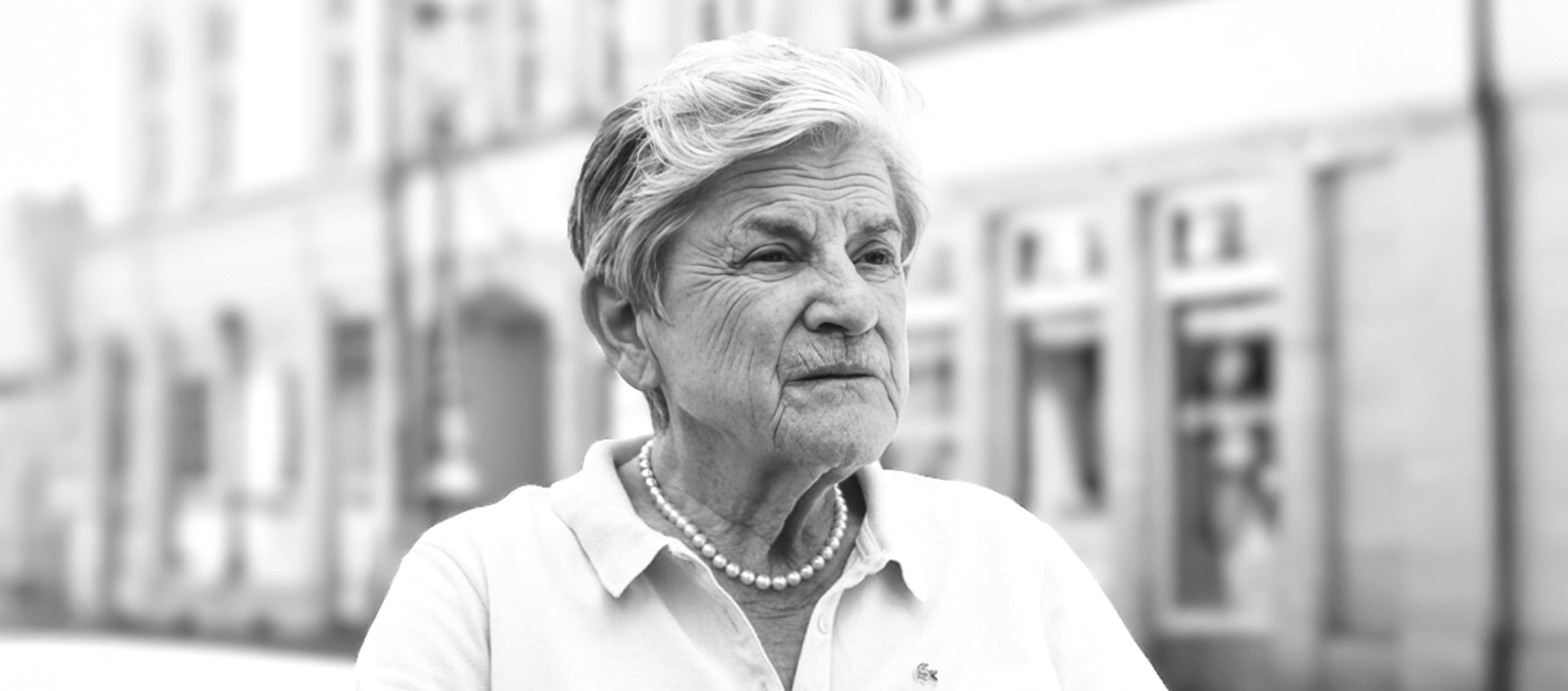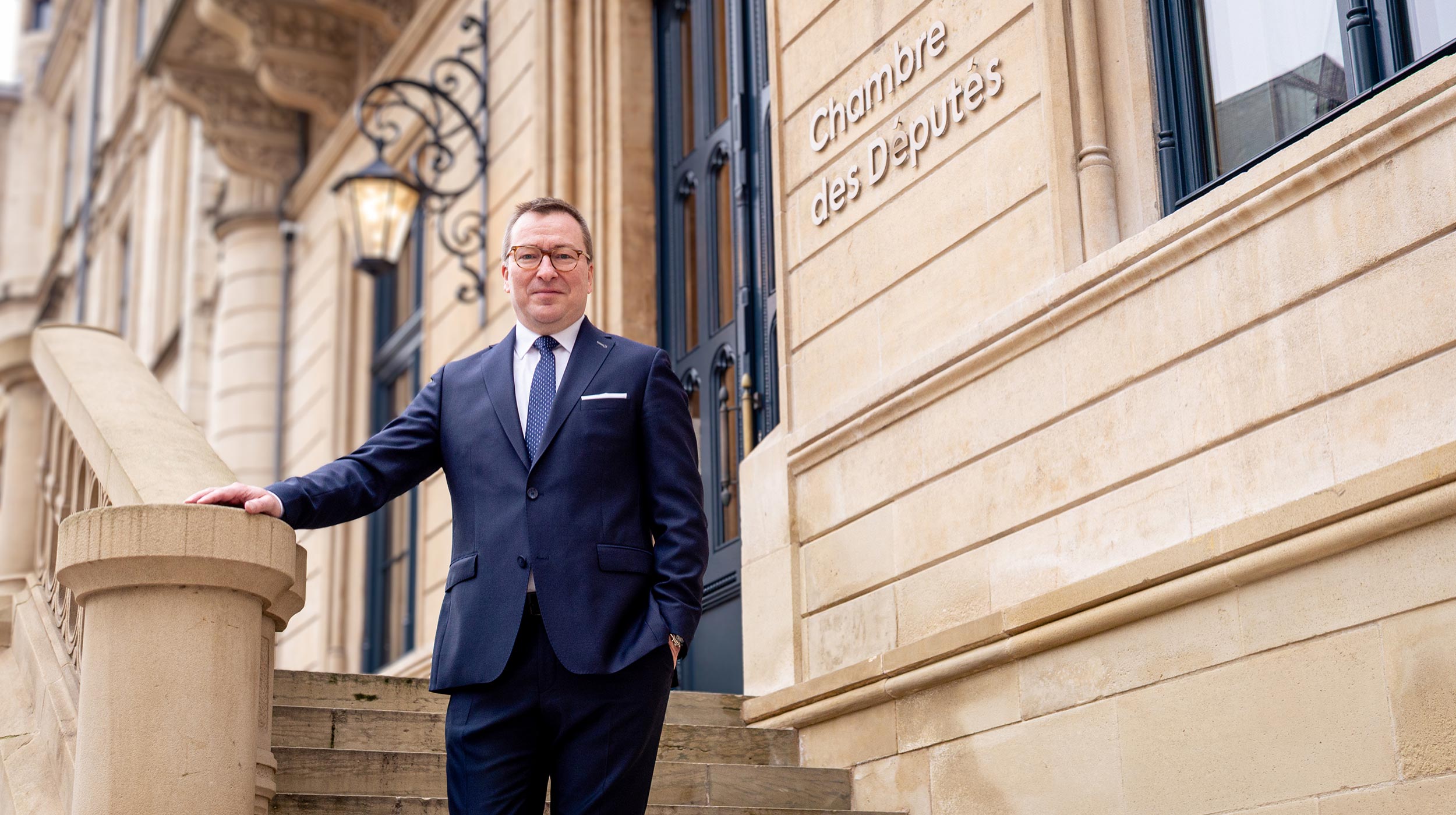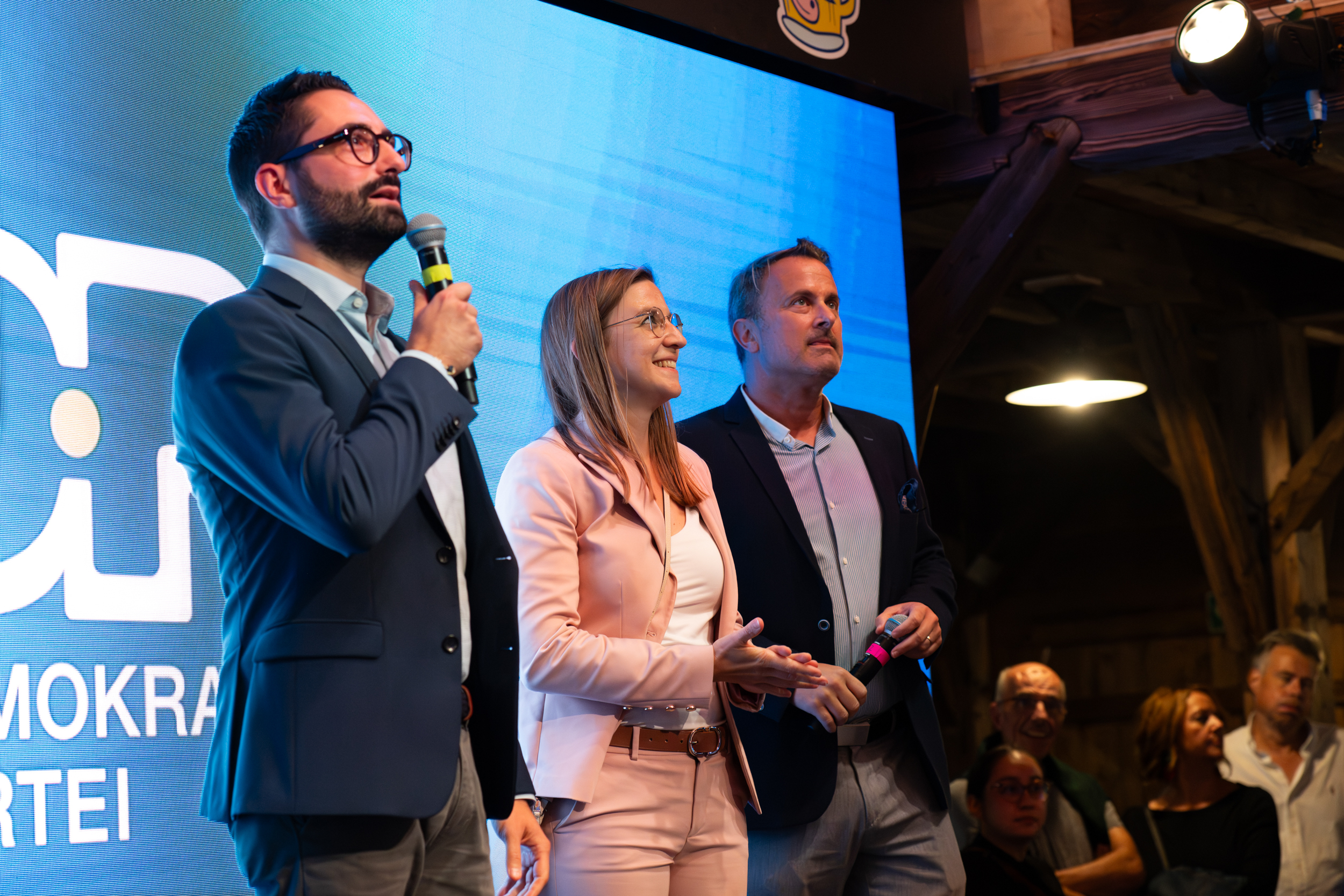René Hübsch was born on January 13, 1937 in the rue de Warker in Ettelbruck. Only 7 months later, his father died, who had a business as a plasterer. In fact, René was supposed to learn the craftsmanship of painter. But the boy is so good in school that the teacher insists on sending him to high school.
“HAIL MOSCOW”
Little René did not see much of the war. But one prank he can still remember well. In the 1st school year (end of 1943) the Hitler greeting is still required in the morning. However, one day René and his colleague feel strong enough to replace “Hail H.” with a “Hail Moscow”. Both had heard rumors that the Russians were attacking the German army. And the teacher smiled secretly…
After his father’s death, René’s mother worked as a tailor. He has fond memories of his youth. Much like his time at Diekirch College: “A new world opened up for me.” René starts in the modern section, but quickly switches to classical. Latin will be one of his great passions.
JACQUES SANTER AND BEN FAYOT
After the Course in the city, the travel continues to the Sorbonne in Paris. Again new impressions and many new acquaintances: “I studied among others with Jacques Santer and Ben Fayot.” René lives in Biermans and benefits from the cultural diversity of the French capital. He reads a lot and goes to the cinema once a week. At that time René Hübsch drove home twice a quarter; also to get the laundry done…
He finances his studies with an interest-free loan from the state. When he wanted to repay the money later, however, the loan became a subsidy. “Decades later, I heard that the Ministry of Education had messed up the files while moving. In order not to be blamed, they simply converted the loan into a subsidy.”
MOLITOR VS WINTER
After graduating from high school, René Hübsch served in the army. As it turned out, the directors Pierre Winter (Athénée) and Ben Molitor (Diekirch) were very interested in the future teacher. “I even interrupted my military service for four weeks to be a substitute teacher at the Athénée in Luxembourg-city.” But René desperately wanted to go to Diekirch, where he eventually taught Latin, French and sometimes history (1962-1979).
In 1974, René Hübsch entered the parliamentary elections with the DP. “I am a devout person, but I had a personal quarrel with Caritas and after that my enthusiasm for the church and its organizations calmed down,” René recalls. He becomes a replacement candidate and could enter parliament in 1977. “But I had been a deputy director for barely 3 months, I did not want to leave again. And I would have lost a third of my salary too. With a family of 3 girls, I said no.”
“I COULD RELY ON YOU”
Two years later, this was no longer an issue, and René was elected second on the North list. Following the tough anti-crisis measures and the socio-political reforms of the Thorn-Vouel/Berg government, it was a very tough election campaign against an aggressive CSV. “The balance sheet of DP-LSAP was not always easy to defend, especially in the North.”
From his time as a Member of Parliament, René remembers in particular the reform of the municipal law. And the problems that the people at the time addressed to their deputies. Recently, an acquaintance complimented him on this: “You were the only one who helped me, I could rely on you.”

UNSTOPPABLE
In 1989, René Hübsch wasn’t reelected, so he then worked halftime as a second deputy director in the high school and halftime in the ministry of Education. For the last 7 years of his professional career, he was the first director of the adult education service.
René Hübsch was a member of the city council in Erpeldange for 36 years, 20 of them as alderman. His masterpiece is the measures against the floods in Ingeldorf, which proved themselves this summer. René is still well-informed about politics: “I know very well.” At the moment, however, he is not well on foot. He broke his hip, but is on the road to recovery. He also regularly visits the Sûre with a good friend. One is walking and the other is riding a special scooter. René Hübsch is unstoppable…






